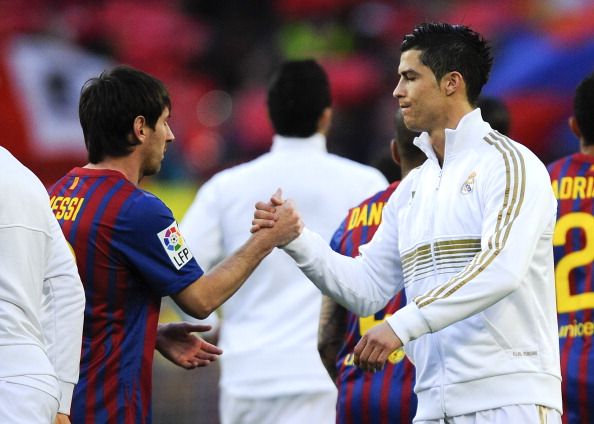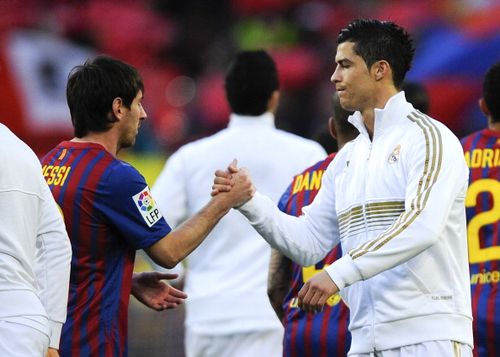
Talent, hard work and opportunities, the driving force behind sporting success?

BARCELONA, SPAIN – APRIL 21: Lionel Messi of FC Barcelona (L) and Cristiano Ronaldo of Real Madrid CF shake hands prior to the La Liga match between FC Barcelona and Real Madrid at Camp Nou on April 21, 2012 in Barcelona, Spain. Real Madrid CF won 1-2. (Photo by David Ramos/Getty Images)
When football commentators marvel at yet another splendid goal by Lionel Messi, the idea that comes to most people’s minds is of Messi being a genius, a player that comes around once every generation.
Though Messi and players like, say Real Madrid’s Cristiano Ronaldo have that edge that separates them from most of their contemporaries, just pure talent is not the only thing that has worked in their favour.
Author Malcom Gladwell in his book ‘Outliers’ has provided reasons as to why some athletes or successful people from any field are more ‘talented’ than others.
Gladwell says that it takes around ‘10,000’ hours of practice to master a particular skill set, and also mentions some other less known factors like being provided the right opportunities too plays a role.
So, though Messi and Ronaldo may be two of world football’s greats today, also a contributing factor to their success was probably how early they started playing the sport (Ronaldo started at 3 and Messi at 4).
Also as Gladwell says that opportunity plays a major part too can be illustrated from the fact that not every professional soccer player in Europe or anybody for that matter would have started playing the game at the age of Messi and Ronaldo.
Players such as, say a Frank Lampard or Steven Gerrard started football around the age of 7 or 8, are examples of how age can also be a defining factor in sporting success.
Players who started out much later, probably may have been denied the opportunity due to factors such as lack of sporting facilities in their respective areas or even financial unstability, which caused them to start at a much later age, or not even start at all.
Though there are exceptions , such as Roger Federer, considered as a late bloomer during the early part of his Tennis career, who later dominated the sport and became a legend.
So, though the combination of talent, hardwork and opportunity may probably be a factor in defining sporting success, ultimately it all depends on the perspective of the average sports fan as to what success in sports really means to them.